Shaikh Aboghodda
was one of the most renowned Islamic scholars of our era.
His fame spread all over the world from Brunei to North America for his outstanding achievements in call to Allah and scholarly works on hadith, Fiqh, and Islamic studies.
Birth:
 Shaikh Abdul Fattah ibn Mohammad ibn Bashir ibn Hasan Aboghodda, may Allah bless him, was born in the city of Aleppo Shaikh Abdul Fattah ibn Mohammad ibn Bashir ibn Hasan Aboghodda, may Allah bless him, was born in the city of Aleppo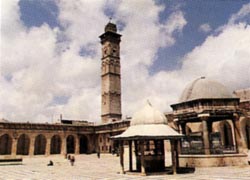 in the north of Syria on 17 Rajab 1336 AH/1917 to a family whose lineage goes back to the great companion Khalid ibn al-Walid. The name Aboghodda is relatively recent; other branches of the family hold the names of Sabbagh and Maksoud. Like many families in Aleppo, the business of the shaikh’s family for generations was fabricating and trading in textiles. His father, Mohammad, was well known for his piety and adherence to Islam. Bashir, his grandfather, was one of the biggest traders of textiles in Aleppo. in the north of Syria on 17 Rajab 1336 AH/1917 to a family whose lineage goes back to the great companion Khalid ibn al-Walid. The name Aboghodda is relatively recent; other branches of the family hold the names of Sabbagh and Maksoud. Like many families in Aleppo, the business of the shaikh’s family for generations was fabricating and trading in textiles. His father, Mohammad, was well known for his piety and adherence to Islam. Bashir, his grandfather, was one of the biggest traders of textiles in Aleppo.

His Search for Knowledge:
 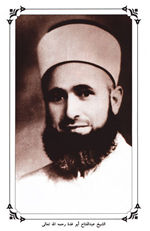 The Shaikh grandfather sensed his intelligence and took care of his education and enrolled him for four years at the Islamic Arab Institute in Aleppo. After working in the family business for few years, and in 1356/1936 at the age of 19, he enrolled at the Khesrevia Madrasa (now known as Shar’eiah Secondary School). He graduated in 1362/1942, and in 1364/1944 left for Egypt to continue his pursuit of knowledge at Al-Azhar, Cairo, where he obtained BA in Shari'ah in 1368/1948 and a diploma in psychology and methods of teaching graduating from Al-Azhar in 1370/1950. The Shaikh grandfather sensed his intelligence and took care of his education and enrolled him for four years at the Islamic Arab Institute in Aleppo. After working in the family business for few years, and in 1356/1936 at the age of 19, he enrolled at the Khesrevia Madrasa (now known as Shar’eiah Secondary School). He graduated in 1362/1942, and in 1364/1944 left for Egypt to continue his pursuit of knowledge at Al-Azhar, Cairo, where he obtained BA in Shari'ah in 1368/1948 and a diploma in psychology and methods of teaching graduating from Al-Azhar in 1370/1950.
His teachers:
In Syria, the following shaikhs were among the most prominent of his teachers:
-
Shaikh Mohammad Raghib al-Tabbakh (1293-1370/1877-1951). A scholar of hadith and history who published and wrote many books, most importantly his seven volumes biographical history of Aleppo I’lam al-Nubala bi Tarikh Halab al-Shahba (Informing the nobles on the History of Aleppo, the white).
-
Shaikh Ahmad ibn Mohammad al-Zarqa (1285-1357=1869-1937). A scholar of Fiqh and fundamentals of Fiqh and a prominent Hanafi Faqih.
-
Shaikh Eisa al-Bayanuni (1290-1362/1874-1942). A scholar of Shafi’i Fiqh and Adab. His mosque was a minute’s walk from the Shaikh’s house, and one of his earliest teachers. His piety and nearness to Allah left undeletable impression on the Shaikh. His son; Shaikh Ahmad (/-1974) was the closest friend to the Shaikh, and his grandsons were students of Shaikh Abdul Fattah.
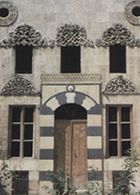
-
Shaikh Muhammad al-Hakeem (1323-1400/1904-1980) A scholar of Hanafi Fiqh and the Mufti of Hanafis in Aleppo.
-
Shaikh As’ad Ebaji (1305-1392/1895-1972). A scholar of Shafi’i Fiqh and the Mufti of Shafi’is in Aleppo.
-
Shaikh Ahmad ibn Mohammad al-Kurdi (1299-1377/1885-1957) A recognised Mufti and scholar of Hanafi Fiqh.
-
Shaikh Mohammad Najib Siraj al-Deen (1292-1373/1876-1954). A scholar of Tafsir and Fiqh and a prominent orator. He is the father of Shaikh Abdullah Siraj al-Deen; a colleague of the Shaikh and a revered Shaikh in Aleppo.
-
Shaikh Mustafa al-Zarqa (1321-1420/1901-1999). The son of Shaikh Ahmad al-Zarqa, and a great scholar in Fiqh, especially business, comparative Fiqh, and Arabic grammar and literature.
In Egypt, the following shaikhs were among the most prominent of his teachers:
-
Shaikh Mohammad al-Khidr Husain (1292-1377/1876-1958). A great scholar of Tafsir, comparative and Maliki fiqh, and Arabic literature and the Grand Shaikh of al-Azhar.
-
Shaikh Abdul Majid Deraz A scholar of Fiqh.
-
Shaikh Abdul Halim Mahmoud (1328-1398/1907-1978) A great scholar of Tafsir, Fundamentals of fiqh, Adab, and Arabic literature and the Grand Shaikh of al-Azhar.
-
Shaikh Mahmoud ibn Mohammad Shaltout (1310-1383/1893-1963). A great scholar of Tafsir and Fiqh who later became the Grand Shaikh of al-Azhar.
He also met many other scholars greatly benefiting and learning from them, most prominent among them are:
-
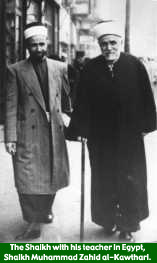 Shaikh Mustafa Sabri (1286-1373/1869-1954) The last of Shaikh al-Islam of the Ottoman Khilafa, he lived in poverty, and dignity, in exile Egypt after the Kemalist revolution. A scholar of Hadith, Fundamentals of Fiqh, Hanafi and Comparative Fiqh, Philosophy, and politics. Shaikh Mustafa Sabri (1286-1373/1869-1954) The last of Shaikh al-Islam of the Ottoman Khilafa, he lived in poverty, and dignity, in exile Egypt after the Kemalist revolution. A scholar of Hadith, Fundamentals of Fiqh, Hanafi and Comparative Fiqh, Philosophy, and politics.
-
Shaikh Mohammad Zahid al-Kawthari (1296-1371/1879-1952) An Ottoman scholar who was the Secretary of Shaikh al-Islam in Turkey, he lived in poverty, and dignity, in exile Egypt after the Kemalist revolution. A scholar of Hadith, Fundamentals of Fiqh, and Hanafi and Comparative Fiqh. He wrote and published many Islamic books. (Pictured right)
-
Imam Hasan ibn Ahmad ibn Abdul Rahman al-Banna (1324-1368/1906-1949) The founder of the Muslim Brotherhood who revived the call to Allah and the understanding of Islam as a comprehensive way of life.
-
Shaikh Ahmad ibn Abdul Rahman al-Banna (1301-1378/1885-1958). The father of the founder of the Muslim Brotherhood, and a scholar of Hadith, Hanafi Fiqh
-
Shaikh Abdul Wahab Khallaf (1305-1375/1888-1956) A scholar of Hadith, Fundamentals of Fiqh, Comparative Fiqh, and laws of inheritance. He wrote and published many Islamic books.
-
Shaikh Mohammad Abo Zahra (1316-1395/1898-1975) A great scholar of Fundamentals of Fiqh, Comparative Fiqh, and history. He wrote many Islamic books. He wrote letters to the Shaikh praising him and his works.

His colleagues:
The following shaikhs studied with the Shaikh in Egypt:
-
Shaikh Mohammad al-Hamid from Hama, Syria
-
Shaikh Mohammad Ali al-Morad from Hama, Syria
-
Shaikh Mohammad Ali Mish’al from Homs, Syria
-
Shaikh Mahmoud Sobhi Abdul Salam from Libya
-
Shaikh Mohammad Jamil Akkad from Aleppo, Syria
-
Dr. Mahmoud Fawzi Faidh Allah from Aleppo
The Shaikh has friends beyond counting; they were scholars of various backgrounds and speciality, Islamic leaders and activists, to list a few(*denotes those who passed away):
-
Shaikh Abdul Aziz Euon al-Sood*, Homs, Syria
-
Shaikh Abdul Ghani Abdul Khaliq, Egypt
-
Shaikh Abdul Rahman al-Bani, who worked with the Shaikh on curriculum of Islamic education in Syria.
-
Shaikh Abo Abdul Rahamn ibn Aqil al-Zahiri, Riyadh
-
Shaikh Adnan Sarmini, Aleppo
-
Shaikh Ahmad Khairi*, faithful student of Shaikh al-Kawthari
-
Shaikh Ahmad Sahnoon, Algeria
-
Shaikh Alawi Maliki*, Mecca
-
Shaikh Ali al-Tantawi, Damascus
-
Shaikh Amjad al-Zahawi*, Baghdad, Iraq
-
Shaikh Hasan Khalid*, the Grand Mufti of Lebanon
-
Shaikh Hasan Mashat*, Mecca
-
Shaikh Ishaq Azzouz*, Mecca
-
Shaikh Manna’ al-Kattan*, Egypt and Riyadh
-
Shaikh Mohammad Abo al-Yusr Abideen*, Damascus
-
Shaikh Mohammad Amin Kutbi*, Mecca
-
Shaikh Mohammad al-Habeeb ibn al-Khoja, from Tunisia and the Secretary General of the Islamic Fiqh Council, Jeddah.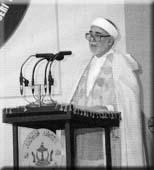
-
Shaikh Mohammad al-Tahir ibn Ashour, Tunisia
-
Shaikh Mohammad Mahmoud al-Sawaf*, Baghdad, Iraq
-
Shaikh Mohammad Nur Saif, Mecca
-
Shaikh Mohammad Sa’eed Ramadan al-Boti, Damascus, Syria
-
Shaikh Molla Ramadan al-Boti*, Damascus, Syria
-
Shaikh Mustafa al-Siba’ei, Damascus
-
Shaikh Wahbi Sulaiman al-Ghawji, Damascus, Syria
-
Shaikh Yosuf al-Qardawi, Qatar
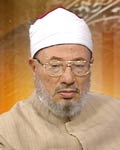

His academic work in Syria:
 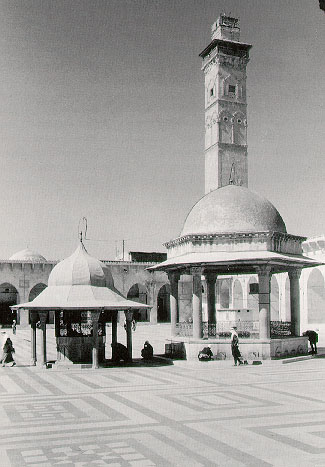 In 1951, Shaikh Aboghodda returned to Aleppo where he won first place in the teachers’ entrance test and was selected as the principal teacher of Islamic Education. For eleven years, he taught Islamic studies at secondary and religious schools in Aleppo and wrote its curriculum and textbooks. He taught at al-Sha’bania school, a non-governmental religious school specializing in disciplines of Islamic knowledge. Then he went to the College of Shari'ah at the University of Damascus, where for three years he taught Usul al-fiqh (Fundamentals of Jurisprudence), Hanafi fiqh and Comparative fiqh for three years and for about two years directed the production of an Encyclopaedia on Islamic Fiqh and also completed a lexicon of fiqh book of al-Muhalla by Ibn Hazm that had been started by other colleagues and published later by the University of Damascus. In 1951, Shaikh Aboghodda returned to Aleppo where he won first place in the teachers’ entrance test and was selected as the principal teacher of Islamic Education. For eleven years, he taught Islamic studies at secondary and religious schools in Aleppo and wrote its curriculum and textbooks. He taught at al-Sha’bania school, a non-governmental religious school specializing in disciplines of Islamic knowledge. Then he went to the College of Shari'ah at the University of Damascus, where for three years he taught Usul al-fiqh (Fundamentals of Jurisprudence), Hanafi fiqh and Comparative fiqh for three years and for about two years directed the production of an Encyclopaedia on Islamic Fiqh and also completed a lexicon of fiqh book of al-Muhalla by Ibn Hazm that had been started by other colleagues and published later by the University of Damascus.

Political and Da’wa activities:
 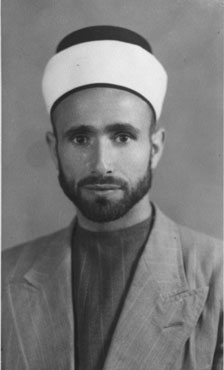 In the 1940's the Shaikh met with Hasan al-Banna in Egypt and joined the Muslim Brotherhood and when he returned to Syria he was very active in field of Islamic works gaining the trust of the Muslim masses and elites and the respect of his adversaries. The brothers in Syria admired and trusted him and eventually elected him as their leader. During his stay in Syria, he was a living school that taught more than three generations of scholars and activists, all of whom were proud to benefit from his vast of knowledge. Apart from the weekly sermons that attracted thousands, he held three weekly sessions on fiqh questions and answers, on fiqh, and on hadith. In the 1940's the Shaikh met with Hasan al-Banna in Egypt and joined the Muslim Brotherhood and when he returned to Syria he was very active in field of Islamic works gaining the trust of the Muslim masses and elites and the respect of his adversaries. The brothers in Syria admired and trusted him and eventually elected him as their leader. During his stay in Syria, he was a living school that taught more than three generations of scholars and activists, all of whom were proud to benefit from his vast of knowledge. Apart from the weekly sermons that attracted thousands, he held three weekly sessions on fiqh questions and answers, on fiqh, and on hadith.
 The Shaikh was very close to the Palestinian cause and participated in many conferences to support it, the late Shaikh Mohammad Amin al-Husaini used to visit him everytime he visited Riyadh. The Shaikh was very close to the Palestinian cause and participated in many conferences to support it, the late Shaikh Mohammad Amin al-Husaini used to visit him everytime he visited Riyadh.
 In 1962, the shaikh was elected as a Member of Parliament for Aleppo despite fierce opposition from seasoned contenders. He used this position to help and promote the interests of Islam and Muslims in Syria. In 1966, the military regime imprisoned him for eleven months in Palmyra's military prison with other scholars and politicians before being released during the war of June 1967, when the government released all political prisoners. He remained involved with the Islamic movement for the rest of his life and enjoyed the admiration and trust of Muslim scholars and the respect of his adversaries and enemies. In 1962, the shaikh was elected as a Member of Parliament for Aleppo despite fierce opposition from seasoned contenders. He used this position to help and promote the interests of Islam and Muslims in Syria. In 1966, the military regime imprisoned him for eleven months in Palmyra's military prison with other scholars and politicians before being released during the war of June 1967, when the government released all political prisoners. He remained involved with the Islamic movement for the rest of his life and enjoyed the admiration and trust of Muslim scholars and the respect of his adversaries and enemies.
 In 1978, the Executive Council of Rabitat al-‘Alam al-Islami (Muslim World League) elected Shaikh Abdul Fattah to fill Syria’s seat that became vacant at the death of the great Shaikh Hasan Habanaka. In 1978, the Executive Council of Rabitat al-‘Alam al-Islami (Muslim World League) elected Shaikh Abdul Fattah to fill Syria’s seat that became vacant at the death of the great Shaikh Hasan Habanaka.

His academic work in Saudi Arabia:
 The shaikh eventually moved to Riyadh, Saudi Arabia where for over 25 years he taught at the Higher Institute for Judges, Imam Mohammad ibn Saud Islamic University, and King Saud University and participated in developing courses and programs at the first. He enjoyed the friendship and trust of many Saudi scholars and officials, notably Shaikh Mohammad ibn Ibrahim Al al-Shaikh the Mufti of Saudi Arabia, Shaikh Abdul Aziz ibn Mohammad Al al-Shaikh the Rector of Islamic Colleges, H.E. Hasan ibn Abdullah Al al-Shaikh the minister of education, H.E. Dr. Abdullah Abdul Mohsin al-Turki the Rector of Imam Mohammad ibn Saud Islamic University, Shaikh Ismail al-Ansari a great scholar of Hadith. The shaikh eventually moved to Riyadh, Saudi Arabia where for over 25 years he taught at the Higher Institute for Judges, Imam Mohammad ibn Saud Islamic University, and King Saud University and participated in developing courses and programs at the first. He enjoyed the friendship and trust of many Saudi scholars and officials, notably Shaikh Mohammad ibn Ibrahim Al al-Shaikh the Mufti of Saudi Arabia, Shaikh Abdul Aziz ibn Mohammad Al al-Shaikh the Rector of Islamic Colleges, H.E. Hasan ibn Abdullah Al al-Shaikh the minister of education, H.E. Dr. Abdullah Abdul Mohsin al-Turki the Rector of Imam Mohammad ibn Saud Islamic University, Shaikh Ismail al-Ansari a great scholar of Hadith.
 In Ramadan 1383/1963 he was invited to deliver a lecture at Hassanian Lectures sponsored, and attended by King Hasan. The lecture focused on explaining a Hadith of the Prophet, peace be upon him, and was televised and met with great approval by the King, and Moroccan scholars. The great scholar of Hadith in Morocco; Shaikh Abdul Hafeez al-Fasi who was then 87 years old heard the Shaikh’s lectures and requested his visit and Ijaza (license) in Hadith. King Hasan invited the Shaikh to come on other Ramadans and later awarded him an honorary medal. In Ramadan 1383/1963 he was invited to deliver a lecture at Hassanian Lectures sponsored, and attended by King Hasan. The lecture focused on explaining a Hadith of the Prophet, peace be upon him, and was televised and met with great approval by the King, and Moroccan scholars. The great scholar of Hadith in Morocco; Shaikh Abdul Hafeez al-Fasi who was then 87 years old heard the Shaikh’s lectures and requested his visit and Ijaza (license) in Hadith. King Hasan invited the Shaikh to come on other Ramadans and later awarded him an honorary medal.
 In 1976, he taught as a visiting Professor at Um Durman Islamic University in Sudan, and in 1978 taught at San’a University in Yemen. He held many teaching sessions and lectures during his visits to scholarly institutions in India, Pakistan, Morocco, Qatar, Algeria, Jordan, Iraq, and Turkey. He wrote, edited and published over 65 books and left behind about 40 books in various stages of writing and editing. In 1976, he taught as a visiting Professor at Um Durman Islamic University in Sudan, and in 1978 taught at San’a University in Yemen. He held many teaching sessions and lectures during his visits to scholarly institutions in India, Pakistan, Morocco, Qatar, Algeria, Jordan, Iraq, and Turkey. He wrote, edited and published over 65 books and left behind about 40 books in various stages of writing and editing.
 In recognition of his scholarly achievements, Muslim scholars nominated the Shaikh in 1995 for the newly founded Prize of Sultan Brunei for Islamic Studies. The Oxford Centre for Islamic Studies presented the Shaikh with the first award at a ceremony in London attended personally by the Sultan and other scholars and dignitaries. In recognition of his scholarly achievements, Muslim scholars nominated the Shaikh in 1995 for the newly founded Prize of Sultan Brunei for Islamic Studies. The Oxford Centre for Islamic Studies presented the Shaikh with the first award at a ceremony in London attended personally by the Sultan and other scholars and dignitaries.

Travels and Contacts:
 Shaikh Aboghodda travelled to the following countries: Algeria, Bahrain, Britain, Brunei, Canada, Egypt, France, Germany, Holland, India, Indonesia, Iran, Iraq, Italy, Jordan, Kuwait, Lebanon, Malaysia, Morocco, Pakistan, Palestine (before 1948), Qatar, Somalia, South Africa, Sudan, Switzerland, Tunisia, Turkey, United Arab Emirates, United States, Uzbekistan, and The Vatican. Shaikh Aboghodda travelled to the following countries: Algeria, Bahrain, Britain, Brunei, Canada, Egypt, France, Germany, Holland, India, Indonesia, Iran, Iraq, Italy, Jordan, Kuwait, Lebanon, Malaysia, Morocco, Pakistan, Palestine (before 1948), Qatar, Somalia, South Africa, Sudan, Switzerland, Tunisia, Turkey, United Arab Emirates, United States, Uzbekistan, and The Vatican.
 In his travels, he visited libraries and met scholars of these countries, as well as lecturing and exchanging knowledge with students and scholars. As a result of his numerous visits to India and Pakistan, and through the numerous tracts and books he had edited and published, was able to bring much of the knowledge of the Indian subcontinent to Arab scholars Among the prominent scholars that he met in these countries were: In his travels, he visited libraries and met scholars of these countries, as well as lecturing and exchanging knowledge with students and scholars. As a result of his numerous visits to India and Pakistan, and through the numerous tracts and books he had edited and published, was able to bring much of the knowledge of the Indian subcontinent to Arab scholars Among the prominent scholars that he met in these countries were:
Shaikh Habib al-Rahman al-Azami (1319-1412/1900-1992) A great scholar and authority of Hadith, Fiqh, biographies, and history.
Shaikh Mohammad Abdul Rashid al-No’mani (born 1333/1914) A great scholar of Hadith and Fiqh living in Karachi, Pakistan.
Shaikh Mohammad Shafi' (1314-1396/1896-1976) A great scholar of Tafsir, Hadith and Fiqh and the Mufti of Pakistan, and the father of two great contemporary scholars; Justice Shaikh Mohammad Taqi Usmani and Shaikh Mohammad Rafi’ Usmani.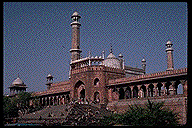
Mufti Ateeq al-Rahman (died 1404/1984) The Mufti of Delhi
Shaikh Mohammad Zakaria ibn Mohammad Yahya al-Kandahlawi (1315-1402/1896-1982) A great scholar of Hadith and Hanafi Fiqh who lived his later days in Medina.
Shaikh Mohammad Yosuf ibn Mohammad Elias al-Kandahlawi (1332-1384/1913-1964) The leader of Tabligh-e Jamat in Pakistan and a scholar of Hadith and Fiqh.
Shaikh Mohammad Yosuf al-Banuri (1326-1397/1908-1977) A great scholar of Tafsir, Hadith, Fiqh, and Arabic literature and poet.
Shaikh Zafar Ahamd Usmani (1310-1394/ 1895-1974) A great scholar of Fiqh an authority on the science of Hadith. The Shaikh published one of his books Qawa’id fi Uloom al-Hadith (Rules on the science of Hadith) which covers the Hadiths’ evidences of the Hanafi Fiqh.
Shaikh Abo al-Wafa Mahmoud Shah al-Afghani (1310-1395/1891/1975) One of the great scholars of this century and an authority on most of Islamic sciences; Hadith, Fundamentals of Fiqh, Fiqh and comparative Fiqh, who edited and published many manuscripts.
Shaikh Abo al-A'la al-Maududi (1321-1399/1902-1979) The founder of Islamic movement in the subcontinent and the leader of Jamat-e Islami of Pakistan. A great Islamic thinker and writer of many books including translation of the meaning of the Quran and a Tafsir.
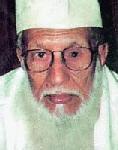 Shaikh Abo al-Hasan Ali al-Nadwi (1332-1420/1913-2000). A close friend of the Shaikh and a great educationalist scholar who oversaw Nadwat al-Ulama of Lucknow; India’s most important institute for Islamic and Arabic studies. A seasoned Islamic leader of India whom Allah blessed with wisdom, knowledge and the love and respect of the people. A native of India of distant Arab descent, who wrote works of Arabic literature better than many Arabs. Shaikh Abo al-Hasan Ali al-Nadwi (1332-1420/1913-2000). A close friend of the Shaikh and a great educationalist scholar who oversaw Nadwat al-Ulama of Lucknow; India’s most important institute for Islamic and Arabic studies. A seasoned Islamic leader of India whom Allah blessed with wisdom, knowledge and the love and respect of the people. A native of India of distant Arab descent, who wrote works of Arabic literature better than many Arabs.

Glimpses of his Character:
 The Shaikh exemplified a distinct noble character combining a scholar and a mujahid. His knowledge was extensive in its scope and deep in its understanding especially in the fields of fiqh (jurisprudence), tafsir (Quranic exegesis), adab (manners), Arabic grammar and literature, history, bibliography, sociology, and psychology. His love and concern for the Muslim nation and humanity were great and Allah endowed him with thoughtful insights in his grasp of the challenges facing Muslims. He was polite and gentle in his speech, and when he talked tears would flow from his eyes with sincerity and humbleness from his heart to touch the hearts of the listeners who would respond with love, respect and trust. He intelligence and quick wit were amazing to many of his friends, foes and always present in his lectures and speech. The Shaikh exemplified a distinct noble character combining a scholar and a mujahid. His knowledge was extensive in its scope and deep in its understanding especially in the fields of fiqh (jurisprudence), tafsir (Quranic exegesis), adab (manners), Arabic grammar and literature, history, bibliography, sociology, and psychology. His love and concern for the Muslim nation and humanity were great and Allah endowed him with thoughtful insights in his grasp of the challenges facing Muslims. He was polite and gentle in his speech, and when he talked tears would flow from his eyes with sincerity and humbleness from his heart to touch the hearts of the listeners who would respond with love, respect and trust. He intelligence and quick wit were amazing to many of his friends, foes and always present in his lectures and speech.
 He was a respectful follower of Imam Abo Hanifa with appreciation and reverence to all Muslim scholars regardless of their school of thought. He was a practical scholar living his time, far from extremism, and would not be reactive or easily provoked. He would always judge matters in the light of the Shari'ah and taught his students to do the same. An example of this was his stance toward the great scholar, Imam Ibn Taimiya. Although his Shaikh Mohammad Zahid al-Kawthari made scathing attacks on Ibn Taimiya and although Shaikh Aboghodda lived and taught in Syria in an environment that was overwhelmingly hostile toward Ibn Taimiya, he would speak respectively and fairly about him pointing out the positive aspects in his works and life. He was a respectful follower of Imam Abo Hanifa with appreciation and reverence to all Muslim scholars regardless of their school of thought. He was a practical scholar living his time, far from extremism, and would not be reactive or easily provoked. He would always judge matters in the light of the Shari'ah and taught his students to do the same. An example of this was his stance toward the great scholar, Imam Ibn Taimiya. Although his Shaikh Mohammad Zahid al-Kawthari made scathing attacks on Ibn Taimiya and although Shaikh Aboghodda lived and taught in Syria in an environment that was overwhelmingly hostile toward Ibn Taimiya, he would speak respectively and fairly about him pointing out the positive aspects in his works and life.
His family:
 In 1951, the Shaikh was married to Mrs. Fatima al-Hashimi who was 16 years old; his marriage was an ideal bond built on love, respect, and dedication for the sake of Allah. His wife of 46 years, Mrs. Al-Hashimi was more than wife; she was a counsellor, an assistant, a secretary, a reader, and a researcher. She took care of everything around the Shaikh to enable him to dedicate all his time for serving the religion of Islam. During his sickness she was always at his side helping without the slightest hesitation or complaint. The Shaikh left eleven children; three sons and eight daughters as follow: In 1951, the Shaikh was married to Mrs. Fatima al-Hashimi who was 16 years old; his marriage was an ideal bond built on love, respect, and dedication for the sake of Allah. His wife of 46 years, Mrs. Al-Hashimi was more than wife; she was a counsellor, an assistant, a secretary, a reader, and a researcher. She took care of everything around the Shaikh to enable him to dedicate all his time for serving the religion of Islam. During his sickness she was always at his side helping without the slightest hesitation or complaint. The Shaikh left eleven children; three sons and eight daughters as follow:
-
Mohammad Zahid born in 1372/1952 holds a BSc in civil engineering and an MBA form University of Toronto. Currently, he lives in Toronto, Canada where he is active in Islamic activities. He is married and has four sons; Abdul Fattah, Ibrahim, Husain, and Salem.
-
Mrs. Maimona born in 1373/1953 married to Farouk Abo Touk a civil engineer originally from Hama, Syria currently living in Mecca. They have 8 children.
-
Mrs. Aisha born in 1375/1955 married to Salah Murad-Agha a civil engineer originally from Hama, Syria currently living in Vancouver, Canada. They have 7 children.
-
Dr. Ayamn born in 1376/1956 is a practicing cardiologist in Regina, Canada. He is married and has 5 children
-
Mrs. Fatima born in 1377/1957 lives in Riyadh, Saudi Arabia. She has 4 children from her husband Ahmad al-Amiri.
-
Mrs. Hala born in 1378/1958 marreid to Abdullah Masri a civil engineer from Aleppo, currently they live in Toronto, Canada. They have 7 children.
-
Mrs. Hasna’ born in 1381/1961 married to Dr. Bashar Abo Touk a paediatric surgeon originally from Hama, Syria currently living in Riyadh. They have 6 children
-
Mrs. Lubaba born in 1385/1965 married to Omar Akhras an electrical engineer originally from Aleppo and currently living in Toronto. They have 4 children.
-
Mrs. Omama born in 1391/1971 married to Dr. Abdullah Abo Touk a dental surgeon originally from Hama, Syria and currently working in Jeddah, Saudi Arabia. They have 3 children.
-
Shaikh Salman born in 1392/1972 and holder of MA in Hadith from Imam Mohammad ibn Saud Islamic University. Currently working as a researcher at the Islamic Fiqh Council, Jeddah.
-
Mrs. Jomana born in 1396/1974 married to Yaser Ka’dan a chemical engineer originally from Aleppo and currently working in the United States. They have two children.
The Shaikh has two brothers and two sister as follows:

-
Mr. Abdul Kareem (-1404/-1984) The eldest brother who worked as a watchman at oil factory. He left 10 children among them Dr. Abdul Sattar who holds PhD in Fiqh from al-Azhar and currently works as a Fiqh consultant at Dallah al-Barakah financial group in Jeddah
-
Mr. Abdul Ghani (-1393/-1973). Although a trader of textile in Aleppo, Abdul Ghani was well-educated pious man. He left 9 children among them Dr. Hasan who holds PhD in Islamic fiqh and currently teaches at King Saud University, Riyadh.
-
Mrs. Sharifa born in, the widow of Mr. Mohammad Salem Birakdar. They have 8 children among them Mr. Abdul Moti, a businessman in Aleppo.
-
Mrs. Na’eema born in, married to Mr. Ali Khayata. They have 5 children among them Mahmoud an industrialist in Aleppo.

The Shaikh has two brothers in law as follows:
-
Dr. Ali al-Hashimi born in and holds a PhD in Arabic literature from Cairo Univesity and the author of numerous books in Arabic literature and Islamic subjects. Currently living in Riyadh, and he has 8 children.
-
Dr. Adel al-Hashimi born in and holds a PhD in Arabic literature from Mosul Univesity and the author of numerous books in Arabic literature and Islamic subjects. Currently living in United Arab Emirates, and he has 5 children
His return to Syria:
 In 1995, President Asad of Syria invited the Shaikh to return to Syria and to meet him. The Shaikh’s return in December 1995 was the headlines for few days, and was met with great joy and happiness by Syrians who were still holding the Shaikh in greet esteem and loved to see him back amongst them. The meeting with President Asad did not materialize though other officials met the Shaikh and were very respectful and cordial. In 1995, President Asad of Syria invited the Shaikh to return to Syria and to meet him. The Shaikh’s return in December 1995 was the headlines for few days, and was met with great joy and happiness by Syrians who were still holding the Shaikh in greet esteem and loved to see him back amongst them. The meeting with President Asad did not materialize though other officials met the Shaikh and were very respectful and cordial.

His sickness and death:
 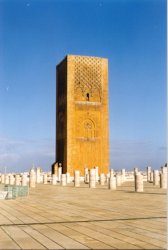 In 1973, the Shaikh suffered a heart attack and was hospitalized for few weeks, however, for the rest of his life, and despite the eventful years he had been through, his heart’s condition was stable. In 1989 the Shaikh complained about deterioration in his sight and doctors at King Khalid Eyes Hospital diagnosed it as Macular Degeneration and suggested laser treatment for the retina. The treatment was not very successful but it stopped the disease from spreading further. In late Sha’ban 1417/late 1996 the Shaikh sight deteriorated again and he decided to go to Riyadh to seek treatment at King Khalid Eyes Hospital, the laser surgery was not successful and resulted in sever headache and pain in his eyes. In Ramadan the Shaikh was hospitalized at King Faisal Specialist Hospital complaining of abdominal pain and internal bleeding. His conditions worsened and he passed away in Riyadh in the early hours of Sunday the 9th of Shawal 1417-16 February 1997. He was buried in al-Baki’ cemetery in Medina after Isha prayers of 10 Shawal 1417. Muslims around the world mourned him in Mecca, Medina, Aleppo, Istanbul, Luknow, Beirut, and Rabat, and his loss was felt most among scholars and students of Islam. May Allah shower his mercy on him, reward him abundantly, and assign him with the Prophets and righteous people for he loved them and, mentally, lived with them during his long life. In 1973, the Shaikh suffered a heart attack and was hospitalized for few weeks, however, for the rest of his life, and despite the eventful years he had been through, his heart’s condition was stable. In 1989 the Shaikh complained about deterioration in his sight and doctors at King Khalid Eyes Hospital diagnosed it as Macular Degeneration and suggested laser treatment for the retina. The treatment was not very successful but it stopped the disease from spreading further. In late Sha’ban 1417/late 1996 the Shaikh sight deteriorated again and he decided to go to Riyadh to seek treatment at King Khalid Eyes Hospital, the laser surgery was not successful and resulted in sever headache and pain in his eyes. In Ramadan the Shaikh was hospitalized at King Faisal Specialist Hospital complaining of abdominal pain and internal bleeding. His conditions worsened and he passed away in Riyadh in the early hours of Sunday the 9th of Shawal 1417-16 February 1997. He was buried in al-Baki’ cemetery in Medina after Isha prayers of 10 Shawal 1417. Muslims around the world mourned him in Mecca, Medina, Aleppo, Istanbul, Luknow, Beirut, and Rabat, and his loss was felt most among scholars and students of Islam. May Allah shower his mercy on him, reward him abundantly, and assign him with the Prophets and righteous people for he loved them and, mentally, lived with them during his long life.
|

